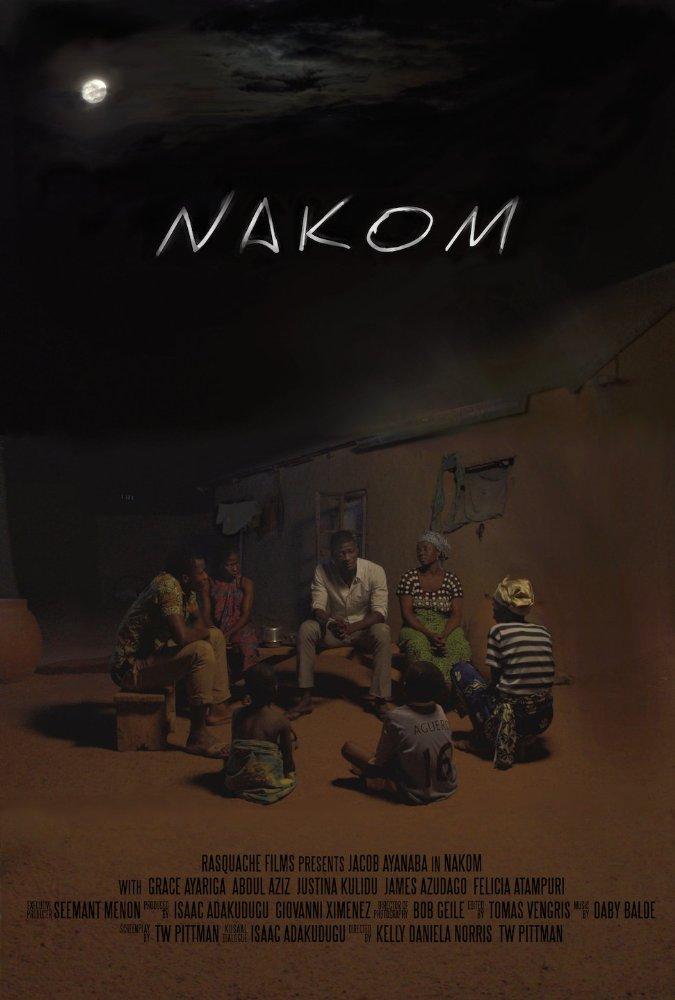
_Nakom_ is not asking for help or pity; it’s not calling for change. The film is simply telling a very real, very important story.
Co-directed by T.W. Pittman and Kelly Daniela Norris, _Nakom_ centers around the existential struggle of Iddrisu (Jacob Ayanaba), a medical student in Kumasi, the second-largest city in poverty-ridden Ghana. All the actors speak Kusaal, a native dialect, giving _Nakom_ a distinctly authentic feeling.
Iddrisu is, according to the film poster, “a young man at the crossroads between tradition and ambition.” He has a girlfriend, he’s getting good grades and essentially enjoying his life in the typical epicurean fashion of college students. Carefree and happy, he doesn’t have many obligations besides the ones he imposes on himself.
Predictably, his circumstances change when he gets a call on his outdated Nokia-esque cell phone. It is his sister, and she summons him back to the village with the news that their father is dead. Iddrisu packs up his things and leaves to go back home.
Life is heavier in the village of Nakom, and the weight lies directly on Iddrisu’s shoulders now that the former man of the house is dead. The struggles he faces are not unlike the real-life struggles for Ghanaians today: teenage marriage and pregnancies, an utter disinterest in education among women, blatant misogyny, harrowing poverty, and decrepit healthcare. To deal with his newfound responsibilities, Iddrisu decides to stay in Nakom for a year and help his family, putting his education and scholarship on hold.
_Nakom_ asks a very important moral question: What is right and wrong? By studying in Kumasi, Iddrisu is devoting himself to a life of knowledge and, eventually, decent money. The money Iddrisu will make as a doctor will solve the vast majority of problems within his family; he will be able to send his sister and younger brothers to college and weaken the load resting on his mother’s shoulders.
But that is a risk that takes time his family doesn’t have. While the sentiment is nice, Iddrisu is not capable of helping his family when they need him the most. His pursuit for education is a morally decent mission, but what if instead his family really needs his presence? Iddrisu is faced with the dilemma of deciding what is less selfish — staying with his family to devote himself to a life of poverty and immense struggle, or going back to school in hopes of future success.
_Nakom_’s message is not new or groundbreaking. We’ve heard the stories of the parts of the world where going to university is reserved for the brilliant and the very, very lucky. _Nakom_’s embodiment of the struggle, though, is what makes this film interesting to watch.
Sometimes we forget. Sometimes we grow entitled. _Nakom_ grounds its audience by highlighting the importance of remembrance, of our own privilege, the absurdity of some of our more petty “problems” and the fact that life, although so different, oftentimes feels the same no matter where you are.
_Edited by Katherine White | [email protected]_